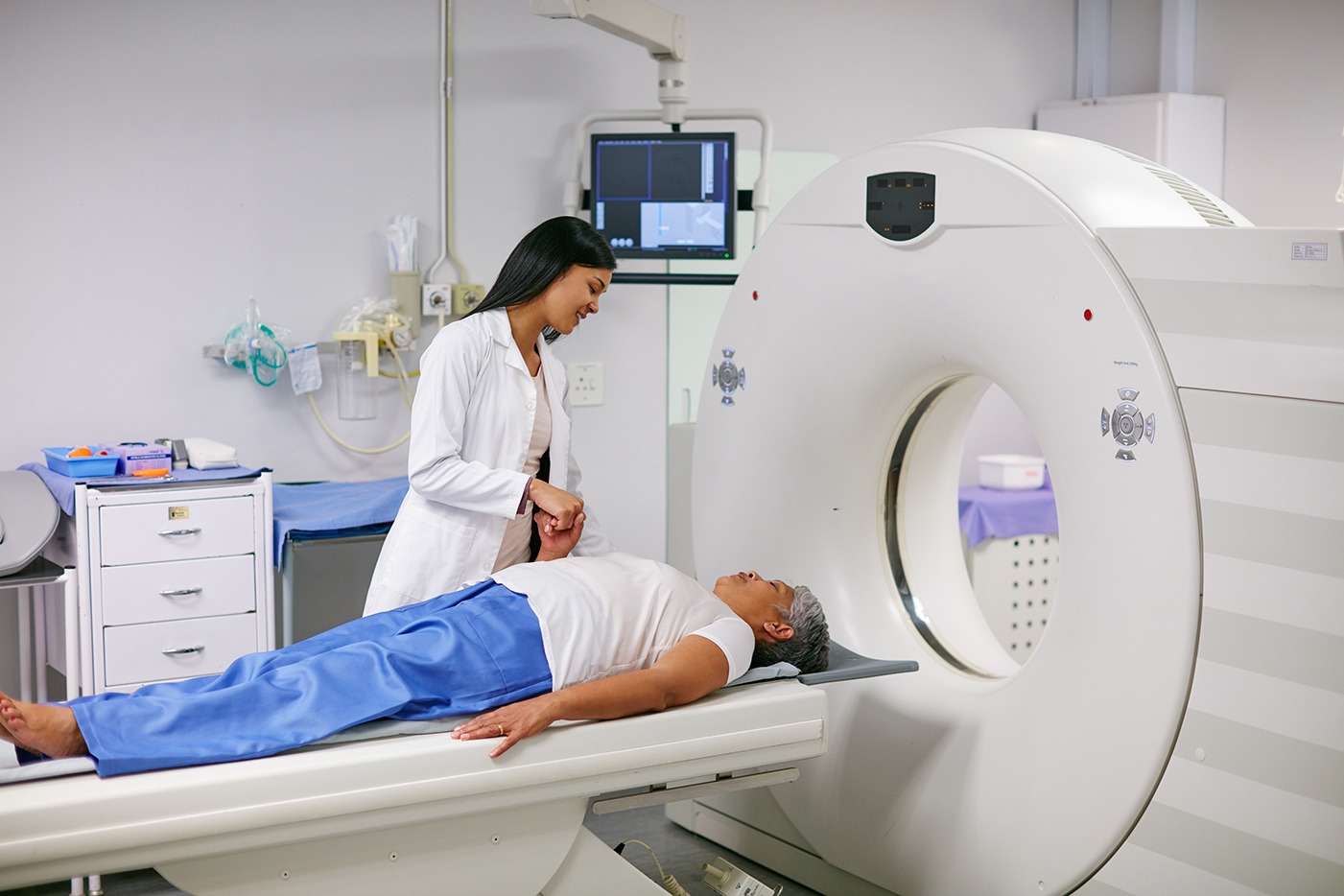How Does MRI Brain Cranial Nerve Protocol Work?
The MRI Brain Cranial Nerve Protocol involves a series of carefully selected imaging sequences aimed at producing high-resolution images of the brainstem, where the cranial nerves originate, as well as the nerves themselves and their pathways. These images are crucial for assessing the size, shape, and integrity of the cranial nerves and any potential abnormalities.
1] High-Resolution Imaging: The MRI scanner uses a powerful magnetic field and radiofrequency waves to generate detailed images. In the cranial nerve protocol, the images are captured with high spatial resolution to clearly depict the fine structures of the cranial nerves.
2] Contrast Enhancement: In some cases, a gadolinium contrast agent is injected into the patient’s bloodstream to enhance the visibility of abnormal structures, such as tumors, inflammation, or vascular malformations. This contrast agent helps to highlight changes in the tissue, making it easier to spot conditions affecting the cranial nerves.
3] Multiplanar Imaging: MRI Scan allows for multiplanar imaging, meaning the cranial nerves can be visualized in multiple planes, including axial, coronal, and sagittal slices. This multi-dimensional approach offers a comprehensive view of nerve anatomy and allows for better detection of abnormalities.
4] Specific Sequences for Cranial Nerves: The protocol includes specialized imaging sequences, such as 3D imaging and fat-saturated T2 sequences, which are optimized to visualize the cranial nerves and the surrounding structures in detail. These sequences are designed to minimize surrounding tissue interference and improve clarity.
Benefits of MRI Brain Cranial Nerve Protocol
1] Non-invasive: MRI is a non-invasive imaging modality, making it safer for patients compared to other methods like CT scans or traditional angiography.
2] High-resolution images: The protocol offers high-resolution images that allow for detailed visualization of the cranial nerves and surrounding tissues, which is crucial for accurate diagnosis and treatment planning.
3] No radiation: Unlike CT scans or X-rays, MRI does not involve ionizing radiation, making it a safer option for repeated imaging.
4] Early detection: MRI Cranial Nerve Protocol can identify issues at an early stage, even before symptoms become fully apparent, which is critical for effective treatment.









